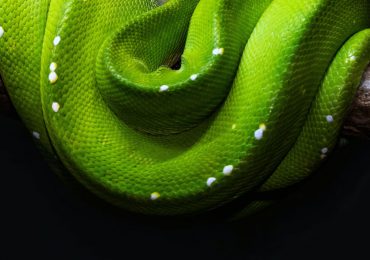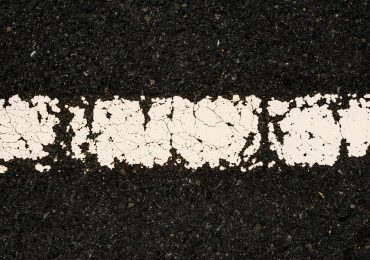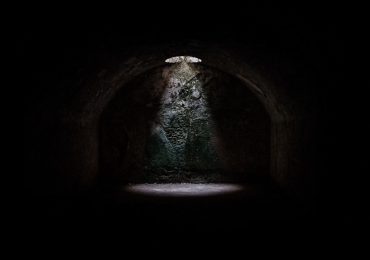The JRB presents an exclusive excerpt from Lying Perfectly Still, Laura Fish’s novel in progress, which is set in Swaziland.
Chapter One
Lindiwe, Swaziland
Let me tell you what happened just after I turned thirteen. It was the dry season, I was bringing the goats in and as I approached our homestead, I heard Papa before I saw him coming over the hill. Lindiwe! he shouted, unsettling the herd.
The wind burrowed through grasses making them shiver. Papa was tramping down the path to our shack. Mama sat outside on the plank held up by oil drums. Something terrible was tunnelling through the grasses towards her. I wanted to slip away, to drive the goats back onto the slopes. But it was no use, the pull was too strong. I swallowed the knot rising up my throat, then herded the goats home at a run.
Mama shifted along the plank. Groaning, clutching her chest, she snuggled into me. I hung an arm around her shoulders, hugged her and kissed her cheek. Papa stared past Mama and me beyond the empty blue. His eyes had never looked so red.
Sometimes Mama covered her mouth, but I knew her cough had brought up blood when she spat and wiped her chin. The pills she took needed food. She reached a hand up to her neck. The fever was taking over.
Papa’s shoulders hunched, his lips twisted with worry. Why haven’t you cooked, he asked. I replied, Nothing’s left. Papa couldn’t pay for more food. Our shame went deep but fear went deeper.
Mama was too weak to weed the onions. She needed help. With everything. Washing, mending, sweeping, gathering firewood, watering goats, baking scones to sell at the school gates, making peace between my brothers when they fought like rats over scraps.
Thula, my little sister, edged the shack door open, showing one eye, half a nose. Her doll was tucked between her arm and her ribs. She’s hungry, Thula said, laying the doll at Mama’s feet, she put a finger to her lips, shush. Thula had hidden this precious doll from our brothers, wedged her between the mattress and the mud-patched wall. Thula crawled stiffly on one side, her dress trailing in the dirt, her mouth slightly open. Her eyes asked why I hadn’t lit our cooking fire.
But why throw dry sticks into your fire to be eaten by hungry flames?
Papa perched beside Mama and me on the bench; sweat dripped from his chin. He took off his cap, rubbed the groove in his forehead where the cap had dug in, then wiped his brow with a mud-streaked sleeve. We could afford cabbage and mealie-meal porridge; cabbage one day, porridge the next. Cabbage the next day, then porridge, then cabbage, and so on for many months. Papa stood up from the bench, swayed, and plunged hard down.
If we don’t care for our ancestors they bring bad luck, he said with a sigh. Go visit the sangoma, our ancestors could be angry.
The thin grassy path to Hluti wound down the valley and over the hills. The sangoma’s rondavel huddled into a steep slope in the shade of the marula tree’s arching branches. The dhu, dhu, dhu of her pestle and mortar floated through the air; chickens had scratched up the sand around her doorway. Shadows seemed to suck me in; the scent of rain-damp earth rising from the floor swallowed the smell of blossom and corncobs blackened over a fire. The sangoma was tall; her hair styled high and round into a sicolo. Stooped over a large granite mortar, her stern eyes and sharp face absorbed with crushing some mixture, she looked like the stout-billed marabou stork picking through a swamp. My thoughts ran forwards; I couldn’t go to Kaya’s party in this ragged blue dress. But we needed money for Mama’s pills, for my brother’s school shoes, for sugar, candles, soap, cooking oil, flour, paraffin, Vaseline, powdered milk, mealies. I couldn’t pay the sangoma with money. I couldn’t even offer mealies.
The shelves in the sangoma’s rondavel stored dried animal skins, stacks of charcoal-smeared plates, peacock feathers for calming the sky when it roared.
The sangoma turned proudly. Her skin was crumpled cloth; she had empty sagging bags for breasts. Sunlight from a window slanted gold across her face. You can gather herbs for my medicines, she said, in exchange for the muti and spells. She said she would cure Mama by giving her muti to snort and a herbal remedy to wash in. With the pestle, she pounded the mixture in the mortar. Dhu, dhu, dhu. Outside, squawking chickens scattered. Dhu, dhu, dhu. Her necklaces of porcupine quills and glass and clay beads jangled. Dhu, dhu, dhu. Mama mustn’t eat or drink, the sangoma grunted. The sangoma said she would throw and read the bones. We had to tell our ancestors we needed money, beg for Papa to find a better job. The sangoma’s methods worked better than the South African doctors in Mbabane.
The next day I helped my gogo collect firewood to sell in stacks along the highway. I loved my gogo. She could carry on her head a bundle of wattle heavy enough for two or three men. When I reached the lemon tree on the way home, I glimpsed the school from the slope to town and the worst feeling came. Going to school had meant going hungry. Last term, when I was twelve and the fees were owing, Papa had said choose education or food. The answer had been easy.
By the end of the week Mama’s sickness was worse. The sangoma said, Bring her to me, the disease is gqusula; it can be cured with a special drink and cutting and steam. I supported Mama—her body limp and sagging, head hanging, we hobbled along the path to the sangoma’s hut. Mama stared at me stubbornly when the sangoma cut the curve of her spine to relieve the lower backaches, then the sores wept. The sangoma said, Take her to Mantenga waterfall for a shower. When we returned, a cauldron was boiling above glowing coals. The sangoma sprinkled herbs and red stones into the bubbling water then bowed Mama over the brew with a blanket draped like a tent over Mama’s head. I began to question the sangoma’s powers because when she raised the blanket the steam had scalded Mama’s face.
Two months later, Mama’s shaking wouldn’t stop; each breath she took was a raspy wheeze. The sangoma dropped hot coals onto a clay plate and crumbled the muti over them to chase away the demons with smoke. This one is possessed, she said, someone has bewitched her. She treated Mama with kugata, two shallow razor blade cuts to draw blood from Mama’s arms. She bent Mama over smoking coals, covered Mama’s head with blankets and held them down to prevent air from entering. I feared Mama would suffocate. The sangoma reached beneath Mama’s skirt and tied a string of yellow beads around Mama’s bare belly. The sangoma said the healing would be speeded. It was a good thing.
That afternoon, the white nurse, who smelled of chemicals like the local clinic and hadn’t visited for over a year, brought food packages to our home; she had fearless blue flames for eyes. Handing the packages to me the nurse explained, Burn everything the sangoma has given you, Jesus has come into your life, the demons will vanish.
When I next visited the sangoma she said, If I try to heal someone and don’t succeed then the sick person needs to train as a healer. But Mama was delirious with fever; she wasn’t well enough to train.
Papa said, Go to the sangoma again, you can pay her back by helping her before more bad luck comes in. Your brothers will look after the homestead.
The grassy path to Hluti felt longer than before. When the sangoma saw me she gave a knowing smile. Once, the sangoma told me, when she was herself a child, she dreamt of a man who said he was her grandfather. He showed her the trees, herbs and roots to use for healing. The sangoma taught me how to soak herbs in a jug of water to soothe sores and itching spots. Usually, when drought came, I could go for weeks with little food: I couldn’t do that anymore. I worried about Mama, hunger gnawed holes in my belly. Eat raw potatoes, the sangoma said. But raw potatoes made me sick. Go back to your family, the sangoma said.
When I returned to our shack it was two weeks later. Thula lay on our sleeping mat as still as her doll. I dared to touch the smooth plastic arm, watched her body for a sigh, willed breath to come. But air wouldn’t move her chest again. The crumpled heap beside the fireplace was Mama. Her moon-shaped eyes were white with fear; pus flowered from her nostrils; the skin on her arms was as scaly and flaky as the white salt fish sold in Mbabane marketplace. I swallowed the lump sliding up my throat. I couldn’t watch Mama die but I couldn’t leave her again. You think she lived? You lie to yourself.
Papa stood behind in the doorway; he had lost weight. For Papa perhaps there would be a cure, but not for Mama. There was no medicine for her. Papa swigged water from his goatskin flask, spat on the ground then, as if she weighed nothing, lifted Mama into his arms.
I followed them into hot, dry sunshine. In daylight, the anguish was carved into Mama’s face like a wooden mask. My hands shot up to cover my eyes. Papa told me to wait at the homestead. I didn’t have the energy to protest. He took Mama’s and Thula’s bodies in turn and finally returned at dusk.
My brothers were coming in from harvesting grasses; framed by the doorway, they walked down the near hillside singing as our neighbour’s goats scampered in for the evening. Their voices mingled like a lullaby with the herd’s mellow bleating.
I wiped my tears fiercely. Papa couldn’t pay for funerals. Mama was the only woman he had loved. He was defeated by the deaths. His face had sunk; his shoulders had shrunk into his chest. He packed his bag and left me and my four younger brothers.
Days were splintered, my future up here in the hills flickered; I couldn’t feed myself and my brothers. This was a place of memories. Memories and hunger. Those who had left were driven to change. Those who remained were tied to this place of grief and gathering darkness. I needed someone. Who was there? Mama was dead. Papa was on his way to South Africa. My brothers? The white nurse who smelled of the clinic? My gogo, aunts and uncles feared the demons would attack them. My best friend, Tinah, and her youngest son had died when the demon beasts struck them.
Phepile?
The next day I followed the goat track along the ridge up into the hills, then turned onto the footpath through the maize fields beside our church. From here you could see Phepile’s bungalow cradled in the curve of the river. The sign outside our church claimed God is Good. Did good come in times of need? I wondered. What was good?
I went the long way to Phepile’s to avoid being seen. Phepile said, Sell the few possessions your parents left, Lindiwe, keep only the thin mattress you sleep on. Rise with the sun, bake scones with the last handfuls of flour, take a path across the hills to sell the scones to children who cluster around the school gates.
I woke early the following morning, baked, and left before sunrise. But other women had arrived first and grabbed the best spots nearest the gates. I waded through grasses where boys herded stray goats, climbed a hillside, then spread out in the sunlight that glanced upon the valleys; silver clouds gathered, their shadows streamed grey across pineapple fields threatening rain. The stench of decaying flesh was in the air. The smell of an animal buzzing with flies. The smell was death. Near the homestead a chubby little hand lay on the track side. Was this the tokoloshe? The hand led to a swollen arm, the swollen arm attached to a bloated body. Had a clever and evil spirit come to cause mischief and more trouble in my world? The tokoloshe stands no more than one foot tall. It feasts on human blood. Its face is crinkled; its penis is so long it has to carry it over one shoulder. I’d heard of babies too young to walk becoming impish monkeys, then behaving like demons, running around playing dirty tricks, even murdering their mothers. Was that why two bloated bodies had been abandoned in the grass? Papa had buried Mama’s and Thula’s bodies in the sibaya and animals must have dug them up. I stepped forwards and a knife cut into my heart. Thula was crawling with maggots. Strips of Mama’s dress were strewn over acacia bushes.
Weeping won’t bring your parents back, Phepile said. Phepile said she was there for me. She was my lihlombe lekukhalela. A shoulder to cry on.
- Laura Fish is a writer of Caribbean parentage. She was born in England and has over 10 years’ experience in broadcast television and radio, working for the BBC and ITV in current affairs, light entertainment and on documentaries. Her second novel, Strange Music (2008) was longlisted for the Orange Prize, 2009, and nominated for the International IMPAC Dublin Literary Award, 2009. Laura is an Honorary Fellow of International Writing Program, Iowa University (US). She has held posts as a tutor and lecturer in Creative Writing at University of St Andrews, Newcastle University and University of East Anglia in the UK, where she completed her PhD, and University of Western Cape (South Africa). Laura is currently programme Leader of the MA in Creative Writing at Northumbria University (UK).
© Laura Fish, 2017





